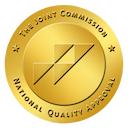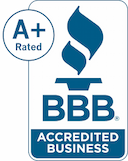Addiction Treatment and Rehab Guide for Bradenton, Florida
If you live in Bradenton, Florida and need addiction treatment, you’re in luck. Evidence-based treatment at renowned addiction treatment and rehab centers is available in the Tampa metropolitan area.
Types of Addiction Treatment Services Near Bradenton
The types of addiction treatment offered at River Oaks Treatment Center near Bradenton, FL, include:1,2
- Medical detox. Detox in a medically managed environment may be necessary for patients expected to experience moderate to severe withdrawal. Detox allows patients to withdraw safely and more comfortably under medical supervision.
- Inpatient or residential treatment. Many patients benefit from live-in rehab that provides intensive treatment in a highly structured, safe, and sober environment.
- Partial Hospitalization Program (PHP). The most intensive form of outpatient care, the PHP at River Oaks requires patients to visit the facility 5 days a week but enables them to keep living at home.
- Intensive outpatient program (IOP). Like the PHP, patients in the IOP visit the facility for treatment and return home after each treatment session is complete. However, the IOP is a step down from partial hospitalization, meaning patients spend fewer hours in treatment per week,
- Telehealth. Telehealth services are available to patients in recovery through River Oaks to make care accessible to those unable to travel to the facility.
- Aftercare. Also referred to as continuing care and follow-up care, aftercare is often a crucial component of overall recovery. Aftercare programs range from 12-step peer support programs to extended stays in a sober living facility following formal treatment.
What to Consider When Choosing Rehab Near Bradenton
Consider the following when deciding on a rehab center near Bradenton:3,4
- Does the facility provide individualized treatment? It is crucial that a rehab facility tailors their treatment approach to each patient. Recovery is not one-size-fits-all, and an effective program evaluates every patient and adjusts before and throughout treatment. Some treatment facilities, including River Oaks Treatment Center, provide specialized treatment programs for certain demographics. Specifically, specialized programs for Veterans, LGBTQ, first responders, and impaired professionals are available at River Oaks.
- Does the treatment center use evidence-based methods? Effective treatment centers utilize evidence-based approaches when treating patients. Many patients find holistic or alternative therapies (e.g., yoga, art therapy, meditation) helpful, but they should be used in conjunction with methods backed by research and not in place of them.
- Does the treatment facility support treatment for co-occurring disorders? A disproportionate number of people with substance use disorders suffer from other mental illnesses like depression, anxiety or PTSD. Research shows that simultaneous treatment of these issues is more effective than treating them separately.
- What is the cost and will my insurance cover it? Insurers are required by law to cover addiction treatment; however, which facilities are covered, and the extent of the coverage depends on your individual plan.
- How long does treatment last? The length of stay in a rehab program can vary, ranging from a few weeks to several months. If short-term rehab is your only option, you can still supplement your treatment with aftercare.
- Does the facility support you after treatment? A comprehensive rehab program should facilitate entry into aftercare programs, such as support groups and community programs. For example, the American Addiction Centers (AAC) alumni program enables former patients to maintain relationships and continue receiving support from peers and mentors long after rehab ends.
How to Get to River Oaks
From Bradenton’s city center, you can get to River Oaks Treatment Center by:
- Getting on I-275 S from US-41 BUS N and S Tamiami Trail.
- Then, follow I-75 N to Gibsonton Dr in Hillsborough County. Take exit 250 from I-75 N.
- Finally, you’ll follow Gibsonton Dr and Boyette Rd to your destination in Riverview, which is River Oaks Treatment Center at 12012 Boyette Rd, Riverview, FL 33569.
Paying for Addiction Services Near Bradenton
Under the Affordable Care Act (ACA), all group insurance plans must provide coverage for mental health and addiction services.4
Despite this federal mandate, insurers vary in the extent to which they provide coverage for mental health services. For example, many plans limit coverage to in-network providers. Additionally, the amount owed in out-of-pocket costs—such as deductibles, copays, or coinsurance rates—will vary depending on your individual insurance policy.
Find out whether your insurance is accepted at River Oaks by using the confidential .
Getting Admitted to Rehab and Starting Treatment
If you’re ready to take the next steps in getting treatment for your addiction, we’re here to help. Give an admissions navigator at River Oaks Treatment Center a call at to learn more about the rehab admissions process.
Admissions navigators are available 24/7 and are here to walk you through the journey of getting treatment, including answering questions about paying for rehab with health insurance and other rehab payment options.
Are You Struggling With Addiction?

Addiction Stats in Bradenton, FL
In 2021, Manatee County reported 159 fatal overdoses, and EMS responded to 2,231 overdose calls in 2022.6 Additionally, there were 1,097 drug-related arrests in 2020.6
If you’re struggling with addiction, you’re not alone. Don’t wait any longer to get the help you need. Call to speak to an admissions navigator at River Oaks Treatment Center today.



